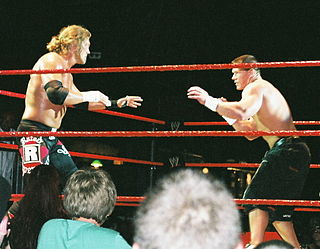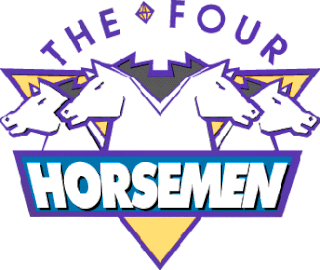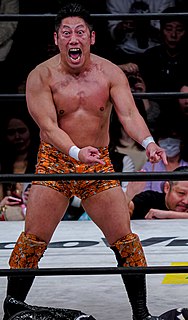
Professional wrestling is a type of athletic theatrical exhibition and entertainment involving wrestling matches whose progress and outcome are planned in advance, typically between performers with established character roles. The wrestling matches are based on classical and "catch" wrestling, with modern additions of striking attacks, acrobatics, feats of strength, fast-moving athleticism and occasionally, improvised weaponry. Professional wrestling also liberally incorporates melodrama. Much like some of the real prizefighters they imitate, the characters in professional wrestling have large egos, flamboyant personalities, and turbulent interpersonal relationships. These personas are scripted much like the matches. Performances mainly take place in a ring similar to the kind used in boxing. In televised wrestling shows, many additional "backstage" scenes are also recorded to supplement the drama in the ring.

Stacy Ann-Marie Keibler is an American former cheerleader and retired professional wrestler, specifically known for her work with World Championship Wrestling (WCW) and World Wrestling Entertainment (WWE), as well as an actress, dancer and model.
This is a list of dance terms that are not names of dances or types of dances. See List of dances and List of dance style categories for those.

In professional wrestling, a heel is a wrestler who portrays a villain, "bad guy" or "rulebreaker" and acts as an antagonist to the faces, who are the heroic protagonist or "good guy" characters. Not everything a heel wrestler does must be villainous: heels need only to be booed or jeered by the audience to be effective characters, although most truly successful heels embrace other aspects of their devious personalities, such as cheating to win or using foreign objects. "The role of a heel is to get 'heat,' which means spurring the crowd to obstreperous hatred, and generally involves cheating and pretty much any other manner of socially unacceptable behavior that will get the job done."

In professional wrestling, a face (babyface) is a heroic, "good guy" or "fan favorite" wrestler, booked (scripted) by the promotion with the aim of being cheered by fans, and acts as a protagonist to the heels, who are the villainous antagonist or "bad guy" characters. Traditionally, they wrestle within the rules and avoid cheating while behaving positively towards the referee and the audience. Such characters are also referred to as blue-eyes in British wrestling and técnicos in lucha libre. The face character is portrayed as a hero relative to the heel wrestlers, who are analogous to villains. Not everything a face wrestler does must be heroic: faces need only to be clapped or cheered by the audience to be effective characters. When the magazine Pro Wrestling Illustrated went into circulation in the late 1970s, the magazine referred to face wrestlers as "fan favorites" or "scientific wrestlers," while heels were referred to as simply "rulebreakers."
In professional wrestling slang, a job is a losing performance in a wrestling match. It is derived from the euphemism "doing one's job", which was employed to protect information related to kayfabe from being revealed. The term can be used a number of ways. When a wrestler is booked to lose a match it is described as "a job". The act itself is described with the verb jobbing, while the act of booking to job is called jobbing out. To lose a match fairly is to job cleanly. Wrestlers who routinely lose matches are known as jobbers. A regular jobber skilled at enhancing the matches he loses, as opposed to a mediocre local rookie or part-timer, is called a carpenter. In the post-kayfabe era the term has taken on a negative connotation, leading to the use of the neutral term enhancement talent.

In professional wrestling, a feud is a staged rivalry between multiple wrestlers or groups of wrestlers. They are integrated into ongoing storylines, particularly in events which are televised. Feuds may last for months or even years or be resolved with implausible speed, perhaps during the course of a single match. WWE's terminology discouraged the use of the term along with the word "war".

Tag team wrestling is a type of professional wrestling in which matches are contested between teams of multiple wrestlers. A tag team may be made up of wrestlers who normally wrestle in singles competition, but more commonly are made of established teams who wrestle regularly as a unit and have a team name and identity.
Aerial techniques, also known as "High-flying moves" are maneuvers in professional wrestling using the ring's posts and ropes as aids, in many cases to demonstrate the speed and agility of smaller, nimble and acrobatically inclined wrestlers preferring this style instead of throwing or locking the opponent. Due to injuries caused by these high risk moves, some promotions have banned the use of some of them. The next list of maneuvers was made under general categories whenever possible.

The Four Horsemen was a professional wrestling stable in Jim Crockett Promotions as part of Mid Atlantic Championship Wrestling and later World Championship Wrestling. The original group consisted of Ric Flair, Arn Anderson, Ole Anderson, and Tully Blanchard. Flair and Arn Anderson were members of each incarnation of the group until Anderson's retirement after a neck injury.

Sylvester Ritter was an American professional wrestler and college football player, best known for his work in Mid-South Wrestling and the World Wrestling Federation as the Junkyard Dog, a nickname he received while working in a wrecking yard. He was inducted into the WWE Hall of Fame class of 2004.
Trisa Laughlin is an American author and retired professional wrestling valet, better known by her ring name, Beulah McGillicutty. She is best known for her appearances in Extreme Championship Wrestling from 1995–1998.

Sharmell Sullivan-Huffman is an American retired professional wrestling valet, dancer, singer, beauty queen, and professional wrestler. As the wife of Booker T, she is best known for her time with World Wrestling Entertainment (WWE) as Queen Sharmell until her release in 2007. She first came to prominence in the wrestling world as Storm, a member of the World Championship Wrestling dance troupe the Nitro Girls and she also played a character called Paisley. Sullivan-Huffman performed for Total Nonstop Action Wrestling (TNA) under the ring name Sharmell from 2007 until leaving the company in 2009.
The professional wrestling tag team of Sting and Lex Luger were best known for competing in Jim Crockett Promotions (JCP), which later became World Championship Wrestling (WCW) and World Wrestling All-Stars (WWA). The team debuted in 1988 and disbanded in 2002.
Footwork refers to dance technique aspects related to feet: foot position and foot action.
Professional wrestling has accrued a considerable amount of jargon throughout its existence. Much of it stems from the industry's origins in the days of carnivals and circuses. In the past, professional wrestlers used such terms in the presence of fans so as not to reveal the worked nature of the business. In recent years, widespread discussion on the Internet has popularized these terms. Many of the terms refer to the financial aspects of professional wrestling in addition to in-ring terms.

Ryo Saito is a Japanese professional wrestler, who currently works for Dragon Gate. He is a former member of the Jimmyz stable, where he was known by the ring name Ryo "Jimmy" Saito. His name is sometimes abbreviated as SaiRyo, so as not to confuse him with SAITO.
In professional wrestling, kayfabe, as a noun, is the portrayal of staged events within the industry as "real" or "true", specifically the portrayal of competition, rivalries, and relationships between participants as being genuine and not staged. The term kayfabe has evolved to also become a code word of sorts for maintaining this "reality" within the direct or indirect presence of the general public.









